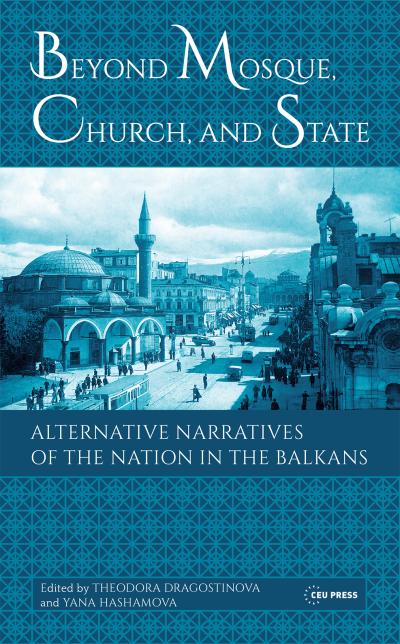Beyond Mosque, Church, and State: Alternative Narratives of the Nation in the Balkans

Dragostinova, Theodora
Central European University Press
Journalists and policy-makers in the West have often assumed that the religious and ethno-national heterogeneity of the Balkans is the underlying reason for the numerous problems the area has faced throughout the twentieth century. The multiple and turbulent political transitions in the area, the dynamics of the interaction between Christianity and Islam, the contradictory and constantly shifting nationality policies, and the fluctuating identities of the diverse populations continue to be seen as major challenges to the stability of the region. By exploring the development of intricate religious, linguistic, and national dynamics in a variety of case studies throughout the Balkans, this volume demonstrates the existence of alternatives and challenges to nationalism in the area. The authors analyze a variety of national, non-national, and anti-national(ist) encounters in four areas—Bosnia, Bulgaria, Macedonia, and Albania—traditionally seen as “hot-beds” of nationalist agitation and tension resulting from their populations' religious or ethno-national diversity. In their entirety, the contributions in this volume chart a more complex picture of the national dynamics. The authors recognize the existence of national tensions both in historical perspective and in contemporary times, but also suggest the possibility of different paths to the nation that did not involve violence but allowed for national accommodation and reconciliation.
Beyond Mosque, Church, and State is essential reading for anyone seeking to move beyond beguiling clichés and simplistic generalizations about the Balkans to search for deeper, empirically grounded understandings of the region. In a spirited introduction and eleven well-researched individual case studies, the book s distinguished contributors issue a fullthroated retort to those prone to reduce Balkan history to violent contention among nations and religious communities. Each author demonstrates the paucity of those time-worn paradigms and then proposes alternative conceptual frameworks conducive to more accurate, nuanced explanations of the region s past and present. Together the contributors have made a compelling case while producing a richly informative collection of essays.
-- Robert J. Donia, University of Michigan, author of “Sarajevo: A Biography”
This collection, written by a group of accomplished Balkanologists, is a welcome contribution to the growing literature questioning the conventional narrative of ethno-national and religious violence in the Balkans by stressing the complexity and fluidity of national and religious allegiances. In a few case studies centered on Albania, Bosnia, Bulgaria, and Macedonia, the authors offer valuable readings on the different ways society and the state cope with heterogeneity. The principal value of the volume lies in its consistent interdisciplinarity, including insights from history, literature, political science, sociology, linguistics, and musicology.
-- Maria Todorova, Gutgsell Professor of History, University of Illinois at Urbana-Champaign, author of “Imagining the Balkans”
This fascinating volume delivers the deathblowto persistent stereotypes of Balkan violence and victimhood. The authors not only deliver the alternative narratives of the nation promised in the title, but their rich case materials, both historical and contemporary, force us to rethink how we interpret official and mainstream discourses of the nation as well. As such, it is a must read for anyone interested in the Balkans or nationalism anywhere else in theworld.
-- Gerald Creed, Hunter College and the Graduate Center, CUNY, author of “Masquerade and Postsocialism: Ritual and Cultural Dispossession in Bulgaria”
Purchasing Information
Page count: 332
Investigators
Filters: 2016
